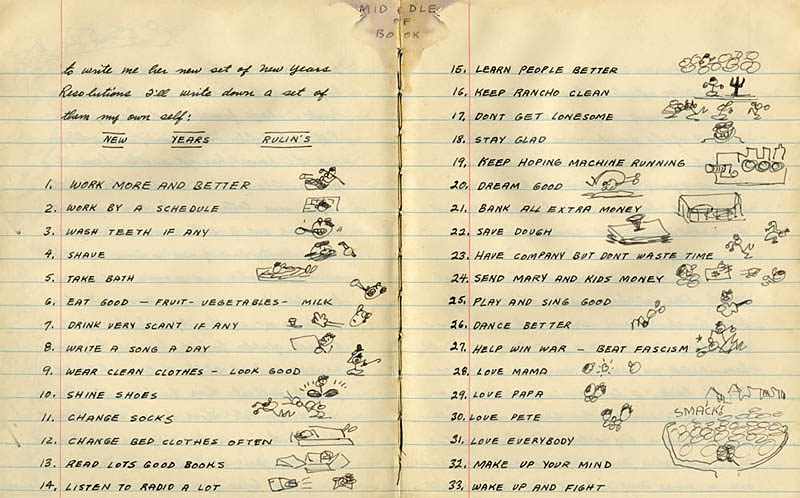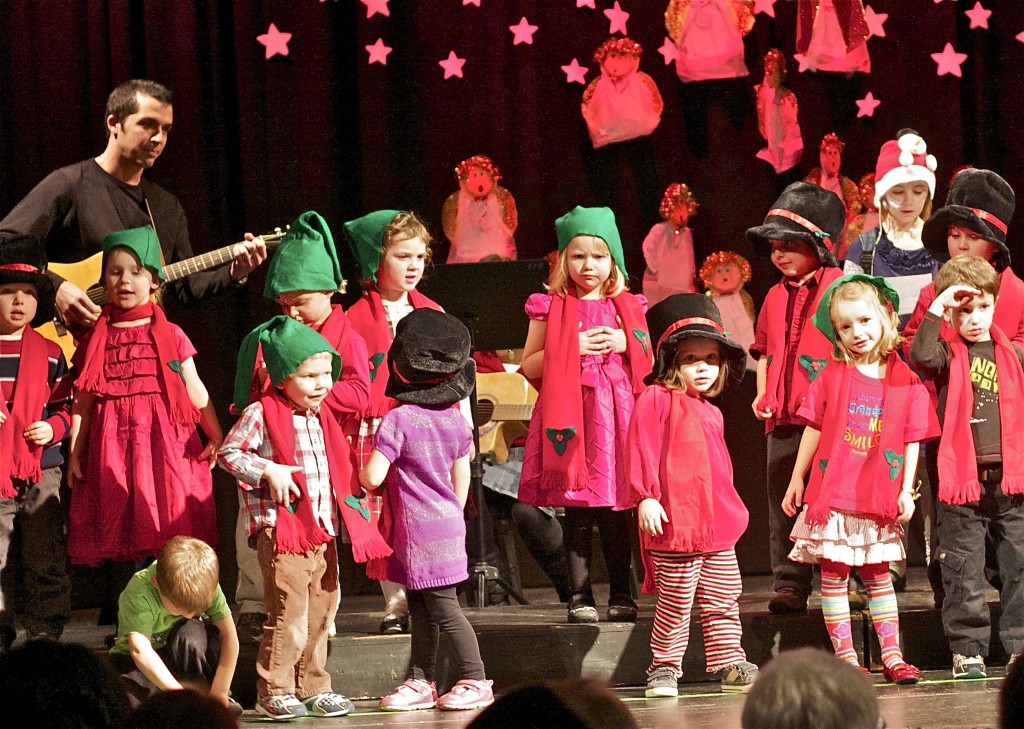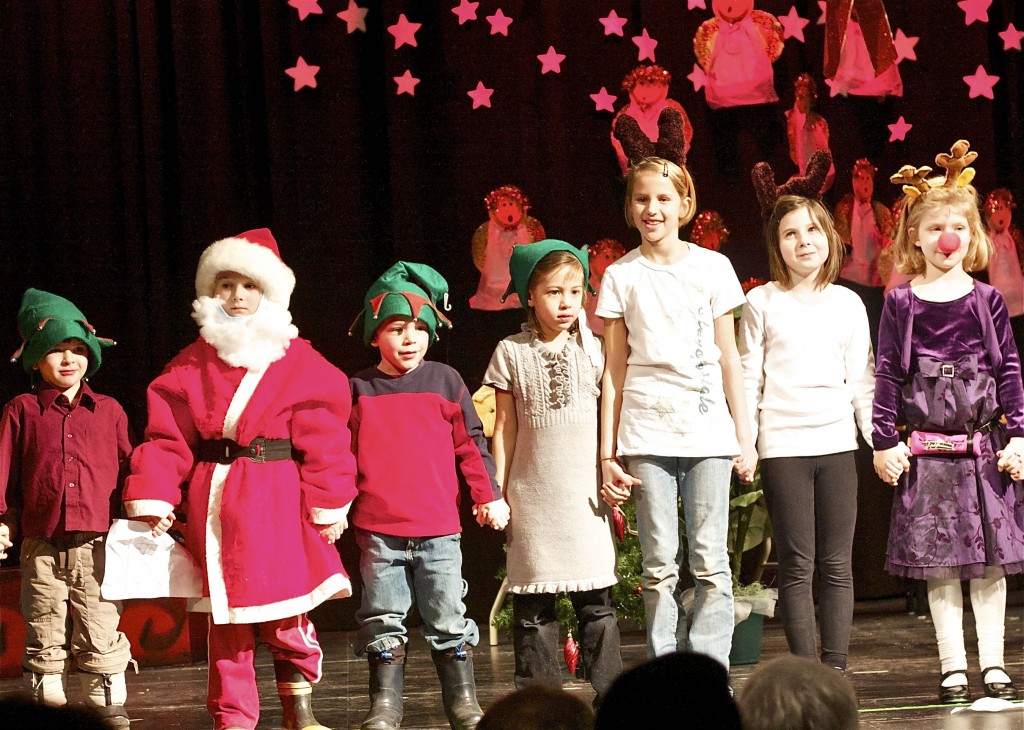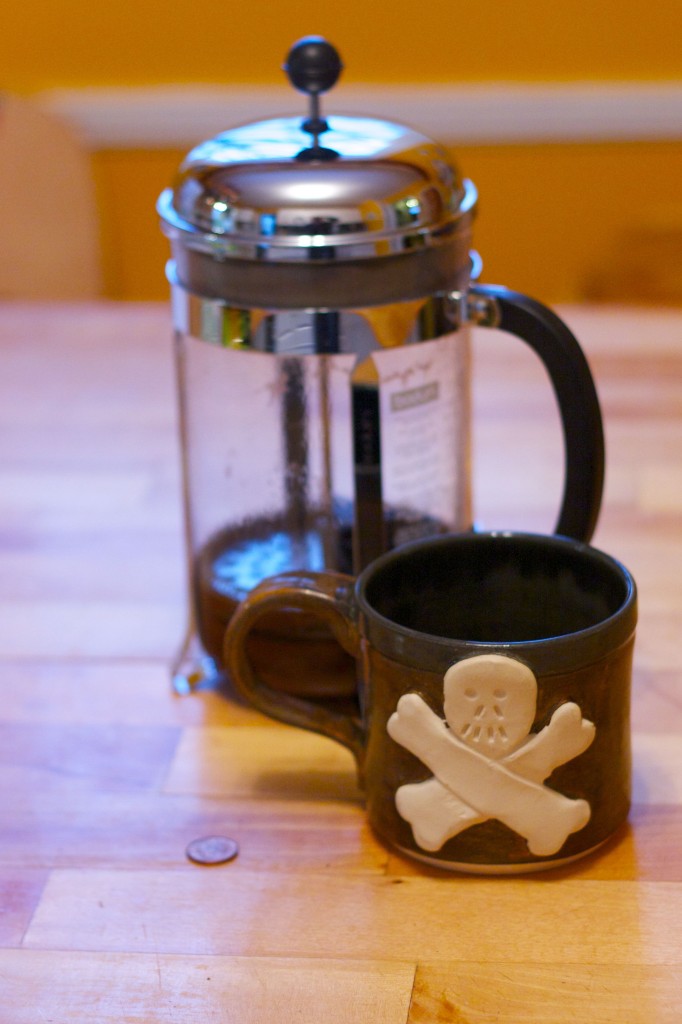Tue 24 Jan 2012
these are my hands, turning forty years old
Posted by bon under milestone stuff, pondering stuff
[34] Comments
i watched the clock turn to midnight last night after everyone was asleep and i petted the cat and i thought, there it is.
12:00am, January 24th.
Lordy, lordy, look who’s forty.
***
forty is the number that has no clear connection to the girl who never quite wanted to grow up and become a woman. yet still, here we are. i have become. i am.
forty was the last age visible from youth, the last outpost of relevancy, of recognizability. Beyond Here There Be Dragons. had you asked me when i was seventeen, the year my mother turned forty, i’d likely have dismissed the whole vulgar contingency with a wave of my hand. forty? ha. i don’t care if i live that long.
youth is stupid. or at least brutally myopic. and we are not so linear as we look, at seventeen.
youth is harder than middle-age. the old people have apparently been hoarding this little secret, keeping it all to themselves. you wake up, and you’re forty, and you still feel not so different from twenty-two except you have some sense of where your life is going and how to get there and you actually think you can do it and you’ve finally learned to maybe value what you think and it is forty years in the desert gone and you are free.
i want to stand on hilltops or fall to my knees and thank unearned fortune and whatever blind luck got thrown in the bag that i have landed here, safe thus far.
***
i took photos of my hands, turning forty years old.
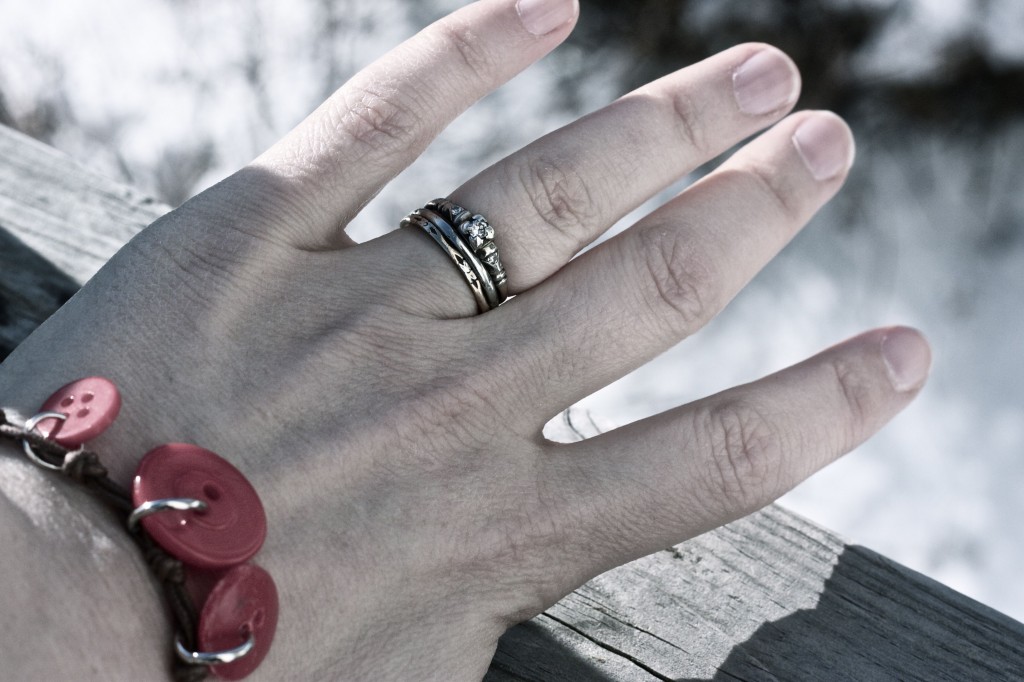
they are dry, in this January light. they are rough and practical and need their cuticles attended to, and the years are starting to show up and dance and sing show tunes all over them. i see my skeleton clear and clawed, beneath the skin. i see my mother’s hands, and those of my daughter.
the old guitar callouses are almost gone, now: my thirties ate them. they brought a fleshy puff above the ring finger on the left hand, instead. it came with pregnancy. it does not seem to plan to leave.
the rings under the fleshy puff – the engagement ring, the wedding and anniversary bands – belonged to one of my grandmothers. i have worn them twelve years now. next week, i will bring them home to the house she lived in as a newlywed. i will paint walls that once were hers with these hands and i will smile at the dust that somehow binds us there, together.
the bracelet on my wrist is new, yet a relic. my other grandmother’s button collection: two tins of bright plastic buttons, saved nearly twenty-four years. we found them this past spring when my grandfather died. my cousin had a set strung for each of the daughters and granddaughters, and mine are red, my favourite colour. they jingle. they bring me joy.
these hands have touched skin and keyboards and the walls inside my head. mostly gently. not always gently. they’ve wiped asses and washed dishes and typed poetry and dried tears and sketched out rooms and worlds and the words “i love you” on the backs of tiny children trying to sleep. they’ve done cartwheels, even last summer.
you cannot see those things, but they are there, as much a part of them as bones.
we are paper-thin, my friends. we slide and float, finding our way. we gather dust. it makes us richer, thicker. we get crumpled. we roll. we leave ourselves behind all over the place. we accumulate and shed and we begin to belong to all the bounty we carry along with us.
maybe someday my hands will turn eighty years old. maybe tomorrow they will be dust. if i knew, would it make a difference in what i do with them today?
i think maybe i’d still be here in the middle of my birthday, struggling to spit out words, to mark something i can barely name.
forty is a gift.
***
it feels wrong and indecorous, to get to think about aging. and cake.
i am distracted with thoughts of Susan.
our friendship fits the analogy. paper-thin, yet rich. i only met her once.
last spring, she took me to the Library of Congress, a pilgrimage. the charming old tour guide straight from Central Casting asked the group of seniors and high school students and…well…us…if anyone was, oh, twenty-eight. and he looked straight at us most gentlemanly-like, and the both of us tittered like a bad episode of The Golden Girls, and i said no, thirty-nine. and she said, no, thirty-seven.
today i am forty. and she is in hospice far away.
it is not right, and it is not fair, and i do not understand and i have lived long enough to know i never will.
there are a thousand people out there sending love. her oldest and dearest friend Marty shares her with us, posting high school pictures and wedding pictures: fleshing out the story of Susan before she was Whymommy. and my heart says rage, rage, but Susan is doing that just beautifully herself, with grace and courage and all i seem to be able to do is sit here and stare at my hands and wish they were holding hers and yet they cannot and it is not my place and all this roils around in the sidecar of my brain and what keeps clunking out is this one small thought.
we are not so linear as we look.
and so i hold Susan in my hands, with hope and love. i hold all the generosity and dignity and kindness she has brought into my life, all the dust of words and friendship that has rubbed between us these five years. all that crumpling and bounty in the small of this dry hand, between one grandmother’s rings and one grandmother’s buttons.
and i think how blessed and grateful a thing, to be forty today.
